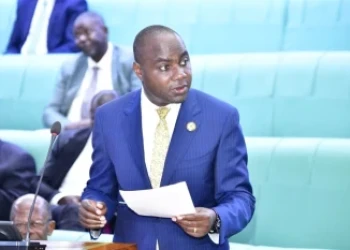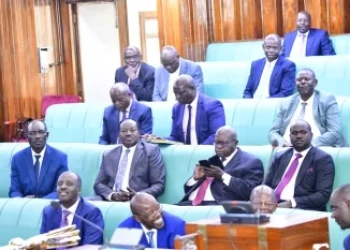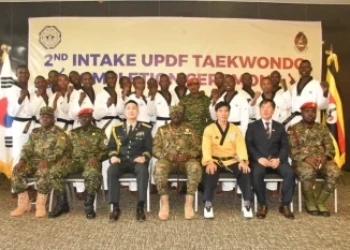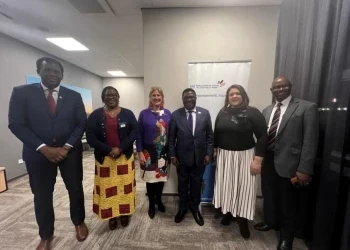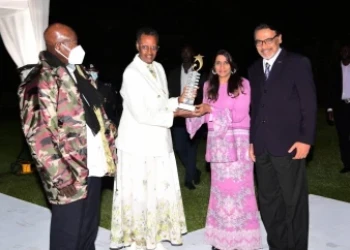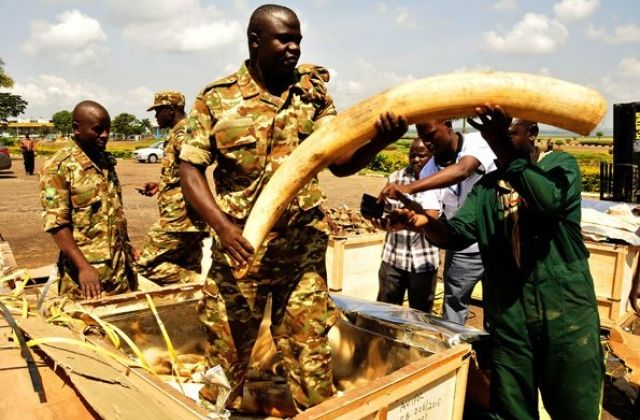
A new report, titled "Deadly Profits: Illegal Wildlife Trafficking through Uganda and South Sudan." Has implicated the Uganda Peoples Defence Forces-UPDF in aiding illegal trafficking of elephant tusks, pangolin scales, hippo teeth, and other endangered wildlife species from Garamba National Park in the Democratic Republic of Congo.
The Report was released on Thursday July 13, by Enough Project, a non-government organisation that supports peace and an end to mass atrocities in Africa's deadliest conflict zones.
According to the report, as Garamba, one of Central Africa's remaining sanctuaries for wildlife, battles a surge in poaching and a rapidly collapsing elephant population, Uganda is increasingly acting as a critical way-point for illegal wildlife.
The wildlife enters the country through both formal and informal border crossings at Oraba and Nimule. The Nimule border crossing connects Acholi sub region with South Sudan's Central Equatoria State, including the capital Juba while the Oraba border crosses through the West Nile region.
The two routes are reportedly frequented by convoys made up of trucks hired by the UPDF whose personnel also escort other commercial trucks. Truck drivers in the region claim that they pay up to 3,000 US dollars, approximately 10 million Uganda Shillings, for a truck to be included in the Ugandan army convoy, once a month.
The report insinuates that UPDF takes advantage of the fact that army trucks and convoys are not checked as they travel through South Sudan, Uganda, or the border crossing.
It quotes a South Sudanese wildlife official saying that "We have had information that UPDF trucks carry back timber, ivory, and we even heard cases of live chimpanzees, but we cannot check their cars."
One Ugandan source quoted in the report claims that he was driven to Nimule on a UPDF truck to view ivory for sale. The source claimed that the Ugandan officer, a lieutenant colonel, worked alongside a South Sudan government army general selling ivory and other wildlife to Kenyan and Ugandan traffickers.
It also quotes a former Uganda Wildlife Authority (UWA) employee saying that on two different instances over the last three years, UWA had intelligence of wildlife being carried on UPDF trucks coming from South Sudan to Arua and in both cases UWA and the police were not allowed to check the trucks.
Uganda and South Sudan have been trafficking hubs for wildlife from Congo and West Africa in recent years, where armed groups and criminal networks have profited, and some state actors have been complicit. Elephant ivory fetches up to 250 dollars or 900,000 Shillings per kilogramme on the Ugandan black market.
The wildlife is then trafficked to either Entebbe International Airport or the border crossings between Uganda and Kenya and to the Kenyan port of Mombasa, which is another exit point of illicit goods destined for Asian markets, or to the port of Dar es Salaam, Tanzania.
Without Uganda and South Sudan, the report says, the wildlife would never get to its end destinations in East Asia. It calls on policymakers to investigate and combat trafficking in these two countries with the aim of curbing poaching in Garamba National Park and the region.
Sasha Lezhnev, the report co-author and Associate Director of Policy at the Enough Project, said: "If we want to save elephants and pangolins, we must pay better attention to the lucrative middle of the illegal wildlife trafficking chain.
In recent years, Uganda has become a major transit point in the global illegal ivory trade, according to the Convention on International Trade in Endangered Species of Wild Fauna and Flora (CITES), going from a country of secondary concern for ivory trafficking in 2009 to a country of primary concern today.
CITES noted in 2016 at its major international conference that Uganda was an important export centre in East Africa with clear links to Central African ivory trade flows.
Four major seizures of nearly three tons of elephant ivory and two tonnes of pangolin scales worth roughly two million Dollars were conducted in Uganda in 2015. The number increased in 2016, and a seizure of over one tonne of ivory in February 2017. However in all cases, no arrests of the actual owners of the cargo were made.
In May, President Yoweri Museveni ordered a new investigation into UWA and its Executive Director, Andrew Seguya, in what is seen as a sign that Uganda could turn the page in the wildlife trafficking arena.
In his letter, Museveni ordered the the Inspector General of Government (IGG) to investigate UWA for eight different possible crimes and illicit activities, including the loss of wildlife from its storeroom, attempted bribery, licensing to sell pangolin scales in contravention of international conventions and other violations.
The report recommends that the U.S. government and European nations should urge the Ugandan government to follow up on high-level cases of wildlife trafficking in Uganda's military, anti-corruption, or wildlife courts, to ensure that the cases move forward in the justice system.
It further urges the Parliament of Uganda to pass the revised Wildlife Act, which includes stiffer penalties for wildlife trafficking, that the Ugandan cabinet has now finished reviewing.
Comments (0)
📌 By commenting, you agree to follow these rules. Let’s keep HowweBiz a safe and vibrant place for music lovers!




